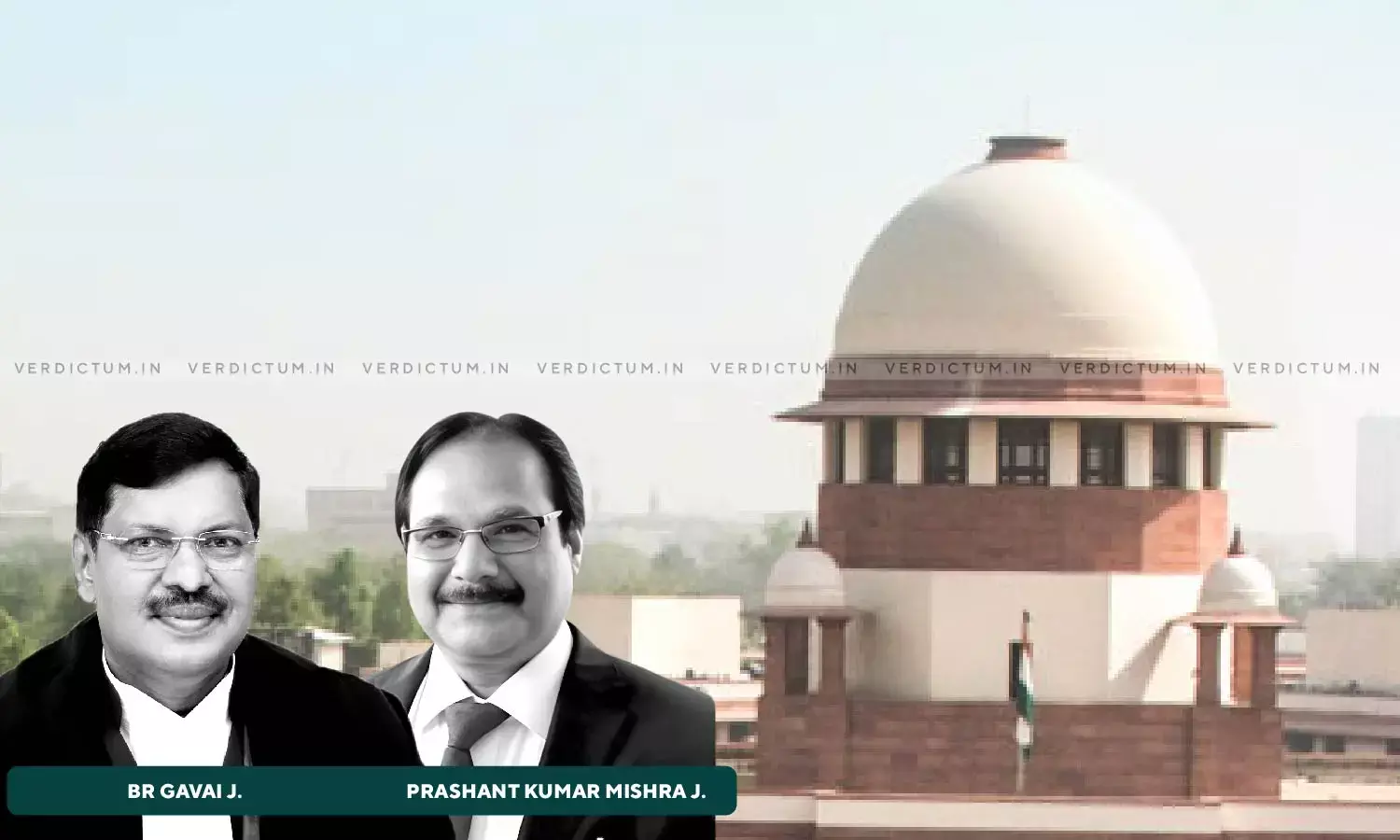If Findings Of Guilt By Inquiry Officer Are Perverse, Appellate Authority/Writ Court Can Interfere: Supreme Court
The Supreme Court held that if the Inquiry Officer's findings of guilt are perverse or irrational, then the Writ Court/Appellate Authoriity can interfere.
The Court noted that usually the findings of the Inquiry Officer are not interfered with by the Writ Court/Appellate Authority.
The Bench comprising Justice B.R. Gavai and Justice Prashant Kumar Mishra observed, “ordinarily the findings recorded by the Inquiry Officer should not be interfered by the appellate authority or by the writ court. However, when the finding of guilt recorded by the Inquiry Officer is based on perverse finding the same can always be interfered”.
Advocate Ansar Ahmad Chaudhary appeared for the Appellant and Advocate Tanmaya Agarwal appeared for the Respondent.
The appeal challenged the dismissal of the Writ Petition by the High Court. The appellant, initially appointed as a class IV employee in the Bareilly Judgeship, was transferred to work as a Process Server in Baheri. Despite working in this role, the appellant was paid the salary of his previous position. After raising grievances, including allegations of harassment and bribery demands, the appellant was suspended and faced a departmental inquiry. The inquiry found the appellant guilty of using inappropriate language, making false allegations, and improper communication. Subsequently, the appellant was dismissed from service, a decision upheld by the High Court. Aggrieved, the Appellant approached the Supreme Court challenging the order.
The Court noted that the appellant faced a departmental inquiry on two charges: first, for allegedly using inappropriate language and making false allegations against the Central Nazir and higher officials, and second, for sending representations without following the proper channel. The Inquiry Officer found both charges proved. However, the finding that the appellant made false statements in his representation was deemed incorrect as the statement referred to meetings with the Janapad Nyaayaadeesh, not the Central Nazir. This discrepancy rendered the finding of the first charge being proved as perverse.
“Regarding the above statement, the Central Nazir has not denied specifically. He has only stated that the charges levelled by the appellant are false and baseless. The Central Nazir has neither made any specific denial that he has not demanded illegal gratification of Rs. 3,000/- from the appellant”, the Bench noted.
The Bench observed the allegation that the Appellant made false accusations of caste discrimination lacks merit. In his letter, the appellant did not make such allegations against the District Judge; instead, he mentioned that the Central Nazir conveyed discriminatory remarks made by the District Judge. The Central Nazir's report does not specifically refute this statement. Similarly, regarding the accusation of demanding illegal gratification, the Central Nazir did not deny it. The second charge, concerning the direct submission of representations without proper routing, does not warrant severe punishment, especially considering the appellant's financial hardship. Moreover, other employees have similarly sent direct representations without facing consequences.
The Court noted, “in this regard, it is suffice to observe that Class-IV employee, when in financial hardship, may represent directly to the superior but that by itself cannot amount to major misconduct for which punishment of termination from service should be imposed”.
Accordingly, the Court allowed the Appeal, set aside the termination order and the appellant was reinstated into service with full benefits
Cause Title: Chatrapal v The State Of Uttar Pradesh & Anr. (2024 INSC 115)
Appearance:
Appellant(s): Advocate Ansar Ahmad Chaudhary
Respondent(s): Advocates Tanmaya Agarwal, Wrick Chatterjee, Aditi Agarwal and Vinayak Mohan




